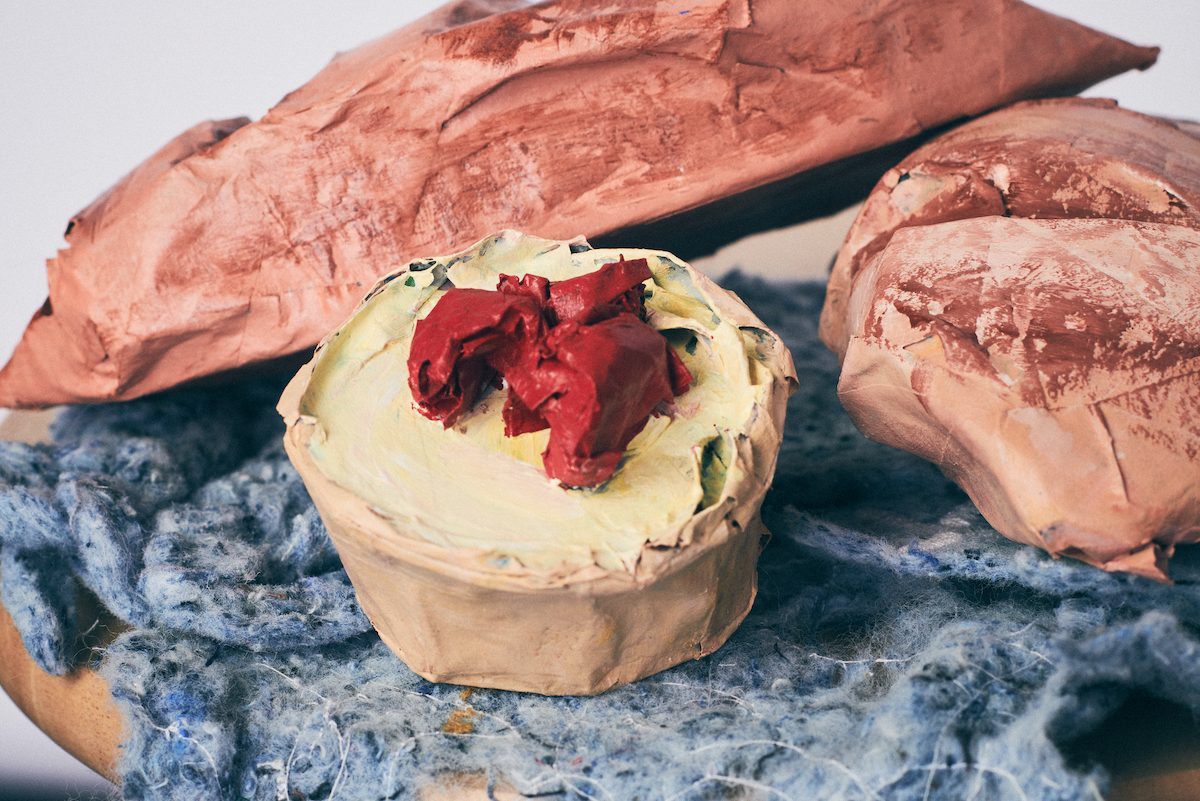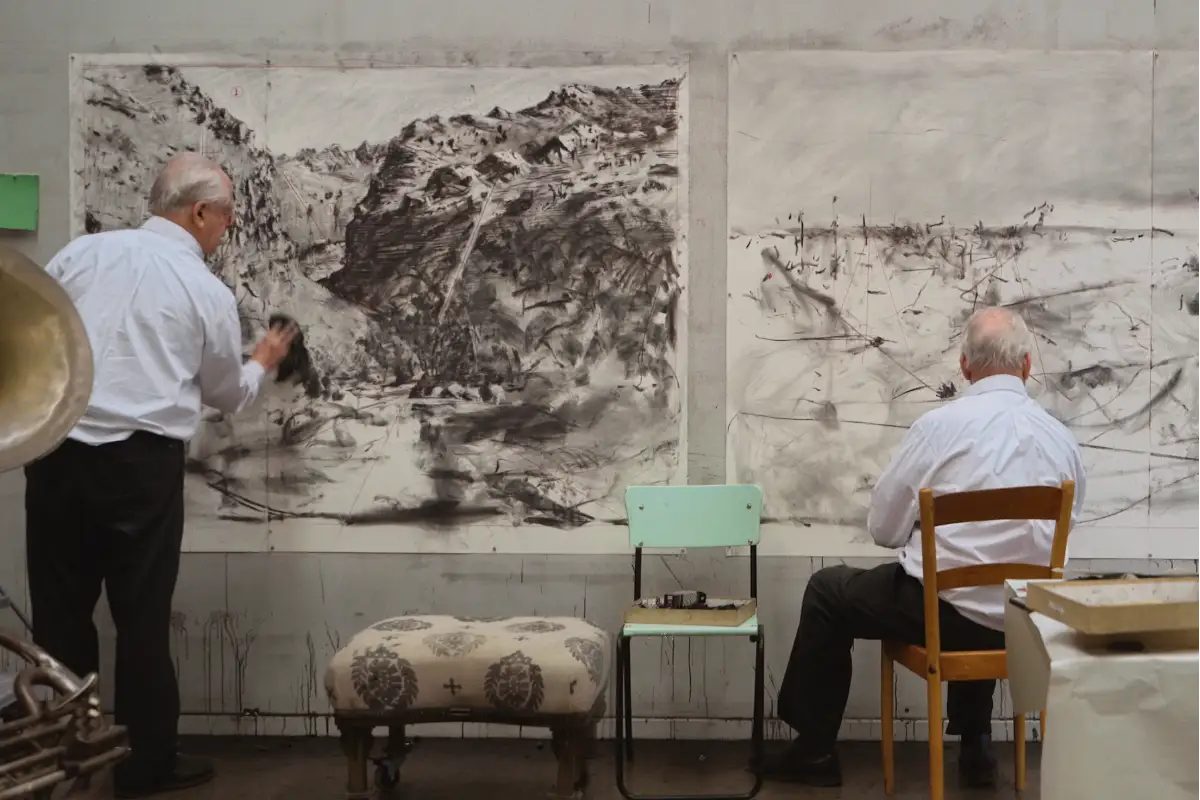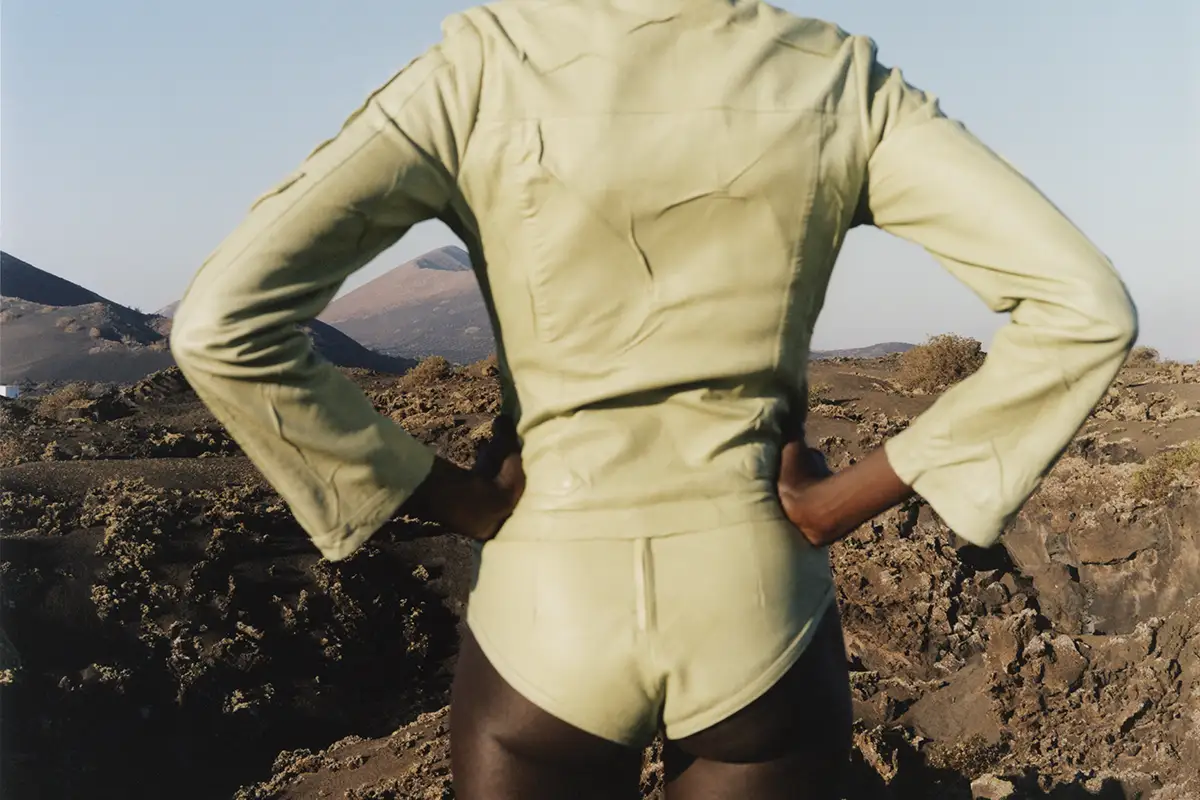Olivia Rubens grew bioplastic on material from algae, without releasing toxicity in the process. «We use humor as a shield and as a pathway»
Lampoon speaks to Olivia Rubens
It has been evaluated that one in five garments worn worldwide are knits. Knitting, as a form of protective gear, was developed in colder climates. The common yarn is wool, although early pieces were knitted in silk. Cotton as a less elastic yarn has not been as accepted a choice for hand knitters.
Artificial yarns and fiber blends improved knitters’ choices of materials and designs throughout the Twentieth century. This development made use of the constitutional properties of yarns and the manipulation of knitted textiles.
Through the practice of knitwear, a space unlocks, where the designer’s creativity can educate the public to search for uniquity abstaining from the accumulation of standardized goods.
Olivia Rubens, born in Canada, is producing works that reflect her personality while finding ways to adopt methods of production than those that deplete our natural resources.
In addition, her creations blend a number of cultural influences coming from corners of today’s mass culture, ranging from cartoon shows (as Superjail, Metalocalypse and Aqua Teen Hunger Force) to photographers (Martin Parr, Chloe Wise and Nadia Lee Cohen), and musicians (like Sbtrkt, Bonobo and Caribou) mixing high and low cultural references. «We often use humor as a shield and as a pathway to deal with our hardships and to start difficult conversations», says Olivia when confronted about this choice.
Her design inspiration comes from names who have shaped a different future, such as Christopher Raeburn, and the Harikrishnan.
Olivia Rubens collaborations
Rubens collaborated with a natural dyer in Ireland, coloring her wool and alpaca with natural extracts. Having found an environmentally sound method to dye wool, the designer turned her attention to plastic, another contemporary conundrum. Its lifecycle can damage ecosystems, creating a perfect circle of recycling that has challengers but few champions. Rubens chooses to substitute plastic with other substances, like bioplastic made from beetroot or corn. Working with American company DenimX, versed in the upcycling of denim, she grew bioplastic on material from algae. The development of a reusable material that can melt without releasing toxicity.
For the future, Rubens has plans. Her forthcoming collection is another step towards sustainability, in collaboration with London’s Post Carbon Lab. Their goal is to develop a fiber able to photosynthesize the way a plant would, breathing CO2 into O2. With the decision to start a knit cycling brand with her knitwear facility in London, which will be completely traceable and ethical. It will document the carbon footprint, with an aim to reach a negative mark.
She has collaborated with Iris Vilu, the Estonian accessories designer behind Jnglsntmssv. «We created miniature corsets and fish to make chainmail for some pieces in the collection after I made the first prototypes, and the underwire for the knit corsets, I made from the same recycled plastic in the workshop».
Duplicitous lives
Recently awarded the 2020 International Talent Support (ITS) Responsible Fashion Award for her London College of Fashion MA graduate collection, Olivia collaborated with Josh Singal to create a body of work for the ITS Diesel Award special project.
The collection titled Duplicitous lives explores what it means to be a woman, and how we construct ourselves to become who we are or who we think we are. It questions the reality of our ‘true’ selves, alikeness, our perception of others, and points towards the metaphorical and literal masks we wear to conceal our identities on a daily basis.
Through knitwear design and social justice initiatives, Olivia Rubens stands for overcoming and embracing differences and battling the injustices of bullying and prejudice. The London based designer defines the values of her brand in terms of accountability, public knowledge and transparency. Rubens is working to mend sourcing and production practices to avoid toxicity to the planet and its people. Working back and forth between London and Canada, she exhibited Birds of a Feather.
Drawing on the works of Jeffrey Gibson and Sonia Gomes, who explore and bring their cultural and social backgrounds and upbringing into their work, the display signified hope to shine a light on the resilience and fortitude witnessed through trying times.
Olivia Rubens
The designer Olivia Rubens is based in Canada and the United Kingdom. Olivia Rubens stands for every person who has battled their way to honouring themselves; overcoming obstacles and ostracism. Also, both in Canada and in England, Rubens approaches social justice initiatives in the same manner. She works to help women, children, and members of the community.




















